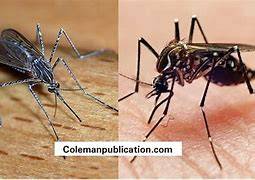Ghana, like many other African countries, has been battling malaria for decades. The disease, which is transmitted through the bites of infected female mosquitoes, kills hundreds of thousands of people every year. However, recent news out of the Ghana Health Service (GHS) has identified an even more dangerous mosquito species, the Anopheles stephensi.
The Anopheles stephensi is not native to Ghana but has been introduced to the country from its native regions in Asia. This species of mosquito is a malaria-transmitting mosquito and is known to be more harmful than the Anopheles mosquito, which has been the primary carrier of malaria in Africa.
According to the GHS, the Anopheles stephensi mosquito is much more dangerous because it has developed resistance to insecticides, making it harder to control. This is a significant cause for concern, as insecticide-treated bed nets and indoor spraying have been crucial in reducing the number of malaria cases in Ghana and other African countries.
Another concerning factor is that the Anopheles stephensi mosquito is a daytime biter, unlike the Anopheles mosquito, which typically bites at night. This means that people are at risk of being bitten during the day, making it harder to protect themselves from infection.
The GHS has urged people to take extra precautions to protect themselves from mosquito bites, including wearing long-sleeved clothing and using insect repellents. They have also stressed the importance of seeking medical attention immediately if anyone experiences symptoms of malaria, such as fever, headache, and chills.
The invasion of the Anopheles stephensi mosquito is not unique to Ghana, and it has also been reported in other African countries such as Ethiopia, Sudan, and South Sudan. The spread of this mosquito species is a significant threat to public health, and urgent action is required to control its spread.
Efforts to control the Anopheles stephensi mosquito have been intensified in Ghana, including increased surveillance and mosquito control measures. The GHS has also called for increased research to better understand the behavior and biology of this new mosquito species.
In conclusion, the discovery of the Anopheles stephensi mosquito in Ghana is a concerning development in the fight against malaria. It is a reminder that the battle against malaria is far from over, and new strategies and tools are needed to combat this deadly disease. Everyone must play their part in protecting themselves from mosquito bites and seeking medical attention immediately if they experience symptoms of malaria. With collective efforts, we can overcome this challenge and prevent needless deaths from malaria.



No comments yet
Be the first to share your thoughts!